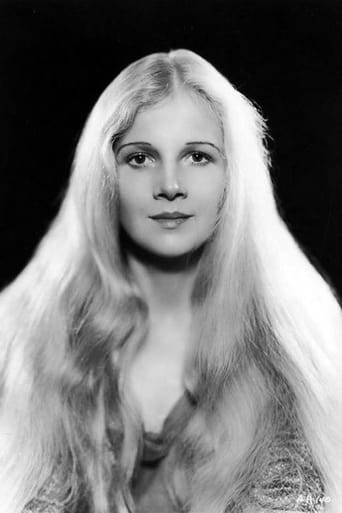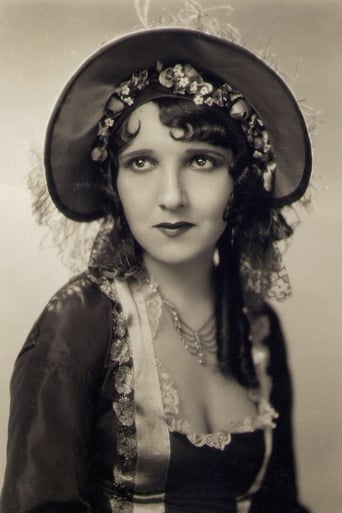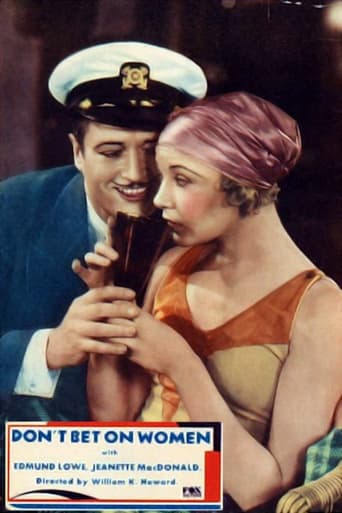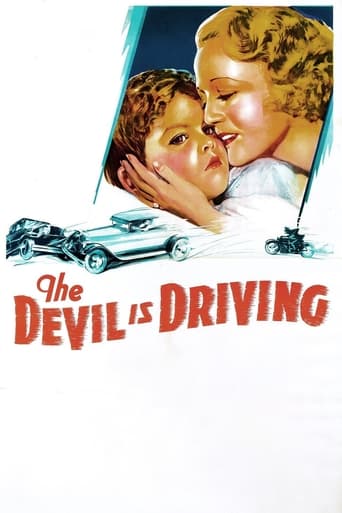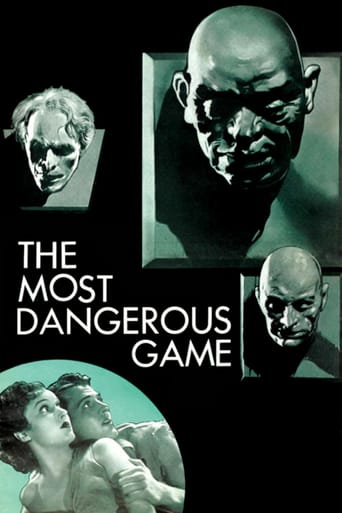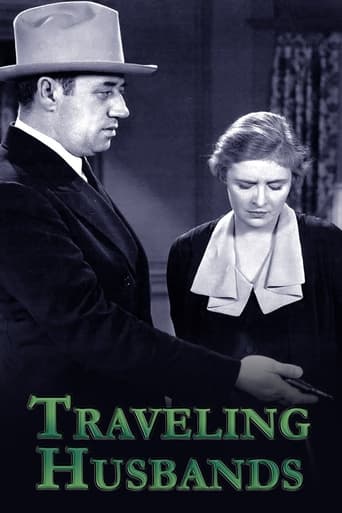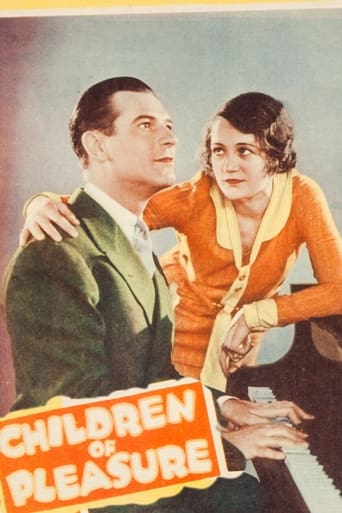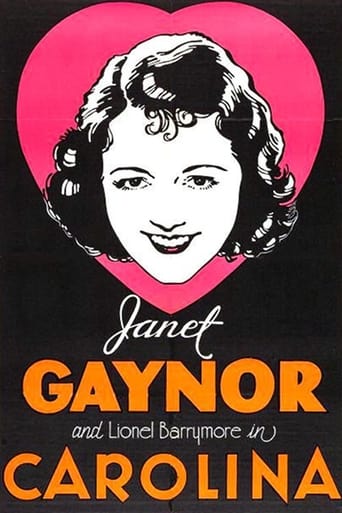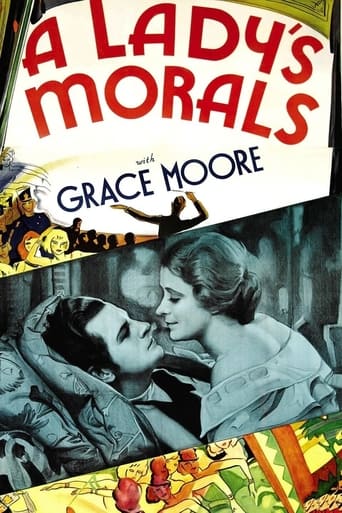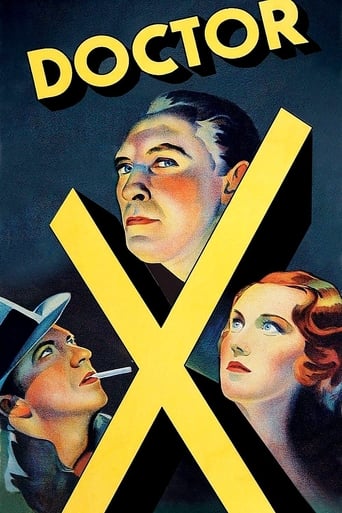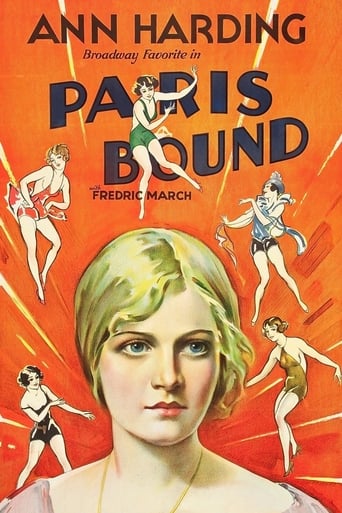
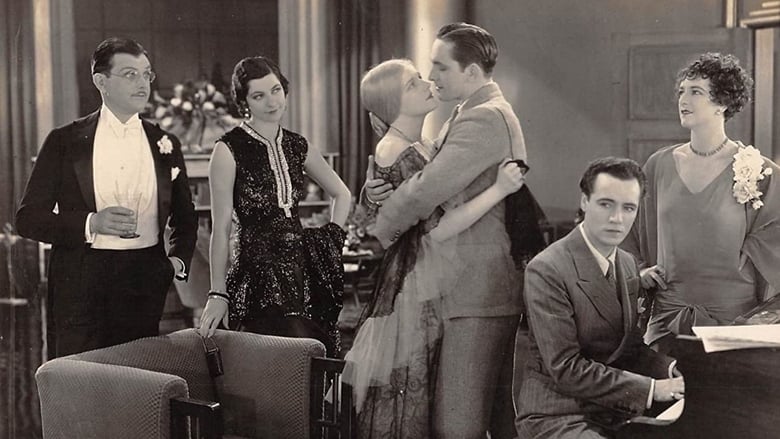
Paris Bound (1929)
Jim Hutton and Mary Archer are two liberals who are content to remain faithful to each other in spirit only. They are married with all the ritual of a church wedding, the bride believing that each should be allowed perfect freedom in personal contacts. Complications arise when these ideals are put into practice.
Watch Trailer
Cast
Similar titles
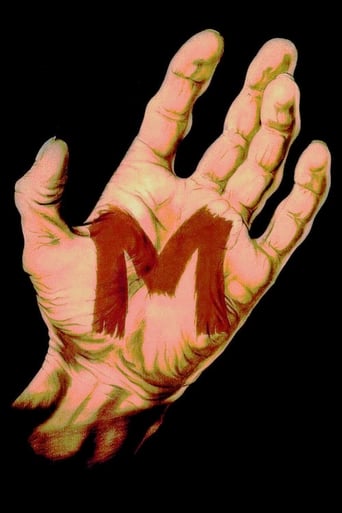
Reviews
Very best movie i ever watch
Powerful
Although it has its amusing moments, in eneral the plot does not convince.
what a terribly boring film. I'm sorry but this is absolutely not deserving of best picture and will be forgotten quickly. Entertaining and engaging cinema? No. Nothing performances with flat faces and mistaking silence for subtlety.
For years I thought this film existed.There was also earlier information claimed that their was a Technicolor sequence and that was lost.Recently I had discovered that the whole movie was lost all along and that it had no technicolor sequence at all.Not to long ago it was found through16mm safety film,as a part of an early home movie distribution,using a 16mm Vitaphone type projector ,This included the sound disc of the film.The problem is that it was only restored in putting back the sound ,that is about it.It did not include cleaning the print through elimination of the scratches ,the jump cuts and the occasional end of the sentence dialog repeat echos and the surface noise of the sound discs. It would of been as good as the original 35mm print .There was an occasional sound drop ,but that was probably the disc ,but it was not enough to interfere in hearing the dialog.Never the less the story was interesting.Fred and Ann play newlyweds.She wants to make it work.She even discuses about him and her not being a monopoly and that he and she should still be allowed to see other men and women,This pre code movie discuss the pro's and cons of open marriage.It turned out that parent,played by George Irving and Charlotte Walker,of Fred got a divorce when when Charlotte discoverer that Irving had a causal affair with another women and so Charlotte got a divorce.HE jumps on her that she should of excepted him o an open level and continued the marriage.That what he did had nothing to do with them.Well Ann and Fred have to ex girl friends and boy friends,played by Carmelita Geraghty and Leslie Fenton.Carmel loves Fred still and Leslie loves Ann.Ann just wants to be friends with Leslie and will allow him to come visit her and use her piano to create a ballet and just be friends.Well Fred had to go to Paris for publishing business,but he goes their too frequently and she is alon.then she find out from Ilka that he been sing him in Paris with as if she ,Ann was with him.This is when Ann principle of open marriage falls into the garbage.Yes Fred had been having an affair with Carmen.Ann can't take it and now wants a divorce .Her father an law tries to pursuade her not to do an that some time the other half needs someone else too some times.The hays code was enforce back then but not totally,ts subtle ,but your dealing with early swingers. Now Leslie begs her that they have an affair too,she give in,but she hears the door knock in,She has told Leslie to take a walk around the block.While she tell her husband what she is going do.Ask for divorce,but it's her friends.It turns out that she was suppose to organize her wedding anniversary and when is the party going to start tomorrow.but she changes her mind and ilk suggest that she should share her wedding anniversary with friends.Another idea that married couple need to mingle with other too.Frederich show back and no long having an affair with Carmen and just want to be with her only.I don't know if this was in the Philip Barry play or the hays code changed it.In spite of it's lack of Restoration and it's 16mm it's no longer lost and it historically important.I found out about this film at one of the vitaphone newsletter.I forgot how many year ago this news letter was.That when was able to order it from grape vine video.It's worth while. 02/15/18.
The rediscovered Paris Bound is, as other reviewers have pointed out, something of a disappointment. It might be considered the quintessential talkie in that the characters talk and talk and talk and talk and, frankly, not to much purpose. Philip Barry had a certain reputation as playwright and Paris Bound had a certain success on the stage because it treated a subject that was still regarded as extremely risqué in the US but it is an absolutely dire piece of work. Passages quoted in other reviews give a good idea how "precious" and artificial the dialogue is and comments in other reviews also reveal how ambiguous the treatment is. The fault again lies largely in US society which required such controversial subjects to be couched in fatuous double-talk and to be presented in a totally misleading fashion.So the controversial nature of the play/film is all a matter of trompe l'oeil. The "liberal" couple are not very liberal at all (even at the outset) but quite extraordinarily uxorious, so that, in a play/film supposedly about adultery, we have in fact an abundance of passionate husband-wife kissing and precious little adultery (talk figures strongly there too) and the conclusion is of course deeply conservative. Adultery, it would seem, is just an illusion; blink twice and it just goes away. The husband's divorced parents (arguably the genuine liberals) are treated rather as aberrant monsters.Barry shows essentially the same ambiguity in The Philadelphia Story which similarly toys with ideas of divorce and adultery, to end with a predictably conservative conclusion. Divorce, like adultery, is also apparently an illusion. Laugh twice and that goes away too. The Philadelphia Story is also extremely talkative but has the distinct advantage of being funny which Paris Bound is most certainly not.Virtually the only "American" film-makers who manged to break through this "no sex please, this is the USA" barrier, were Erich von Stroheim and Ernest Lubitsch. Stroheim capitalised on his established wartime reputation as a "German villain" to get away with things(possible because they were heavily marked "villain") which no other director in the US could get away with. Lubitsch, after long years of producing light comedy and musicals to establish a huge if slightly bogus reputation, and by dint of a good deal of skillful mise en scène and a certain low cunning,was able to produce a remarkable film like Design for Living and make light of adultery in A Certain Feeling or To Be or Not To Be. But these remained the exceptions that proved the rule.The Stroheim logic was peculiar to his own situation and rather ingenious. When a character has been shown, with official approval, raping a nurse and defenestrating a baby in a propaganda film, it is a bit difficult to find grounds on which to then censor the deviant behaviour of a succession of rather similar characters played by the selfsame actor in his fiction films (Blind Husbands or Foolish Wives or Blind Husbands)But even so Stroheim had to fight hard to maintain his independence and had plenty of problems with censorship, particularly on the part of the snip-happy producers who would eventually succeed in destroying his directing career completely. He was after all at the time only the best director that the US had ever produced (by quite a margin). Who needs such people? Gloria Swanson was probably right in thinking that even Stroheim would not have got away with Queen Kelly as originally filmed - the later scenes, cut from the version eventually shown, are still quite troubling to watch even today. She is wrong in blaming (as she later did) the Hays Code, which did not then exist but, contrary to popular belief, there was plenty of pre-code censorship and the Hays Code merely "codified" rules that very largely already existed.The difference between "pre-code" and "post-code" is for the most part just wishful thinking. Most censorship, before and afterwards, was in any case, as with Queen Kelly, self-censorship by the producers, constantly terrified of any kind of controversy, which, in those days, still had the power to ruin careers and conceivably even institutions. The Hays Code (in any case their own creation) simply gave producers a convenient alibi. So it is not really the case that the Code prevented directors from doing this, that or the other (particularly the other) but rather that it gave carte blanche to the producers and their henchmen (the so-called "editors", but sometimes more accurately described, even in credits, as "cutters") to chop the films about so as to render them "harmless" in the way they were so fond of doing.The "Lubitsch touch" was, in the end, a more sustainable method of getting round the rules than "the man you love to hate" method, especially as it was a myth originally created by the production companies themselves. Lubitsch simply broadened the definition. To return to this film, Fredric March is adequate (the least talkative character, he doesn't really have much to do but kiss) and Ann Harding is, as ever, dazzling, but her two other films made in the year, Her Private Affair - attacked, ironically, by reviewers at that address as being based on a "failed" play - and Condemned are both better films than Paris Bound although this was the film that made Harding a star because of the rather spurious reputation achieved by the play.
Slow and stilted, this film is obviously the adaptation of a play--all the action takes place (or could) in one room. The director shows his tin ear (and whatever is the visual equivalent) by starting the movie with Ann Harding and Fredric March going through the wedding service, which goes on and on and on. The two attractive leads, both highly accomplished actors, are the reason for seeing this, as are such distinctly period touches as his saying to her "Take a deep breath" and handing her a cigarette. Ilka Chase also makes two brief, welcome appearances as a fashionable, flippant socialite. But the plot is minuscule and is also well past its use-by date--we're told that a good wife overlooks a husband's affairs if he really loves her and the other women mean nothing to him. And how does she know he feels that way? Because he says so!
Dated, stagey and suffering from a static camera, this early Philip Barry play still manages to pack a wallop due to Barry's wonderful dialogue and the strengths of the leads, Frederick March and Ann Harding, right at the beginning of their careers, but possessed of a naturalness that carries this movie along. Thanks to the Vitaphone Project for reuniting the rediscovered soundtrack to the moving image.
